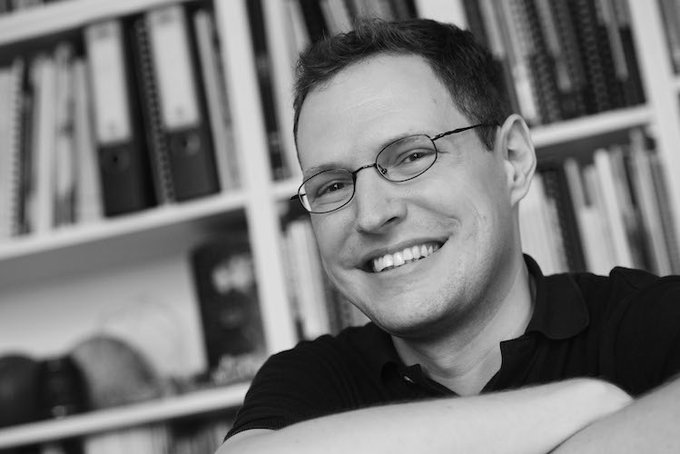

Exciton Science Associate Investigator A/Prof. Ivan Kassal was awarded the 2020 Le Fèvre Medal by the Australian Academy of Science.
The Le Fèvre Medal for research in chemistry commemorates the work of the late Professor Raymond James Wood Le Fèvre FAA FRS. Its purpose is to recognise outstanding basic research in chemistry by early-career researchers.
“It was a great feeling,” Ivan said of receiving the award.
“I felt really honoured for the recognition of my work but also in many ways, it was a vote of confidence in future work. I hope that I can live up to the expectations.”
Ivan is a theorist working at the intersection of quantum science, chemistry, biophysics, and materials science. He pioneered some of the first applications of quantum computers to chemistry, showing they could dramatically accelerate difficult chemical calculations.
He has also unravelled ways that photosynthetic organisms improve their light harvesting, and is using those lessons to better understand next-generation excitonic materials, especially organic solar cells.
Ivan works in collaboration with Centre members including Chief Investigator Girish Lakhwani to better understand charge motion in disordered states.
“A lot of my work in exciton science in the last few years has been about developing new computational methods for describing excitons and how they move through complicated materials,” he said.
“We’re finally getting results and now it’s about applying it. I expect there to be more and more opportunities to assist the experimental groups within the Centre when it comes to interpreting their results.”
According to Ivan, the lack of order in organic semiconductors, organic photovoltaics and organic materials for singlet fission presents particular theoretical challenges.
He said: “The fact that they’re very messy makes them very difficult to understand properly in a computer. Or in a human brain. So it makes it difficult to understand and interpret experimental results.
“We sort of know how to deal with two extremes of very disordered materials or very well ordered materials, but the theories that are used to describe them are very different. A lot of very interesting next-generation materials for organic electronics and organic photovoltaics are in this intermediate regime between perfectly ordered and perfectly disordered.
“So that’s why I’m trying to understand how those work and how do we bridge the theoretical gaps between the two extremes. It turns out quantum mechanics is very important in understanding how excitons move around in these slightly disordered materials, but actually doing it properly is quite hard.”
While Ivan is passionate about developing better theories and models, there are very real potential applications for his work that serve as a reminder of its long-term importance.
“For me the personal goal is really trying to be able to understand the world around me and trying to represent it mathematically,” he said.
“I’m very much a theorist in that regard. The ultimate vision of many theorists, including me, is at some point we will be able to predict better materials on a computer. We have very good models for how bridges are going to sway in the wind and so we can have a pretty good idea before we start building a bridge that it’s not going to fall down. But when it comes to discovering new materials, what’s the best thing for a new solar cell? We’re not quite there yet.
“If you want it to be a mature science or a mature technology, you want to be able to predict it from scratch. That’s a vision of being able to understand everything and being able to predict it, that’s something I find quite motivating. I think the reason why I’m interested in organic semiconductors, organic electronics and organic photovoltaics is partly the environmental benefits, that these could be of great use to us to tackle the energy problem that we urgently face.”

Associate Investigator A/Prof. Ivan Kassal